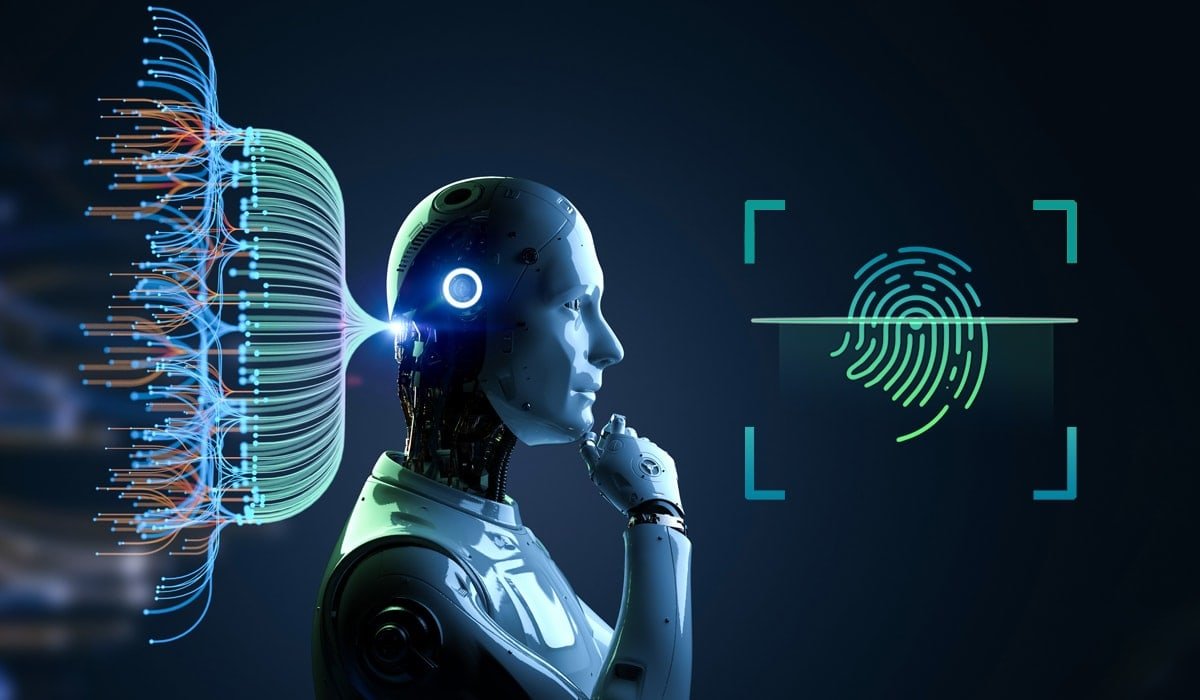Artificial Intelligence
Top Artificial Intelligence Applications Transforming Industries in 2025

Top Artificial Intelligence Applications Transforming Industries in 2025
1. Introduction
Artificial Intelligence (AI) has evolved from a futuristic concept to an integral part of modern life. From personalized shopping recommendations to self-driving cars, AI is revolutionizing industries by automating tasks, enhancing decision-making, and improving efficiency. According to Grand View Research, the global AI market is projected to reach $1.8 trillion by 2030, highlighting its rapid adoption.
This article explores the top AI applications across industries, their real-world impact, and future trends. Whether you're a tech enthusiast, business leader, or student, understanding AI’s role is crucial in today’s digital era.
2. What is Artificial Intelligence?
Artificial Intelligence (AI) refers to machine-displayed intelligence that mimics human thinking and learning. It encompasses:
- Machine Learning (ML): Algorithms that improve through data.
- Deep Learning: Neural networks for complex tasks like image recognition.
- Natural Language Processing (NLP): Enables machines to understand human language (e.g., chatbots).
- Computer Vision: AI that interprets visual data (e.g., facial recognition).
AI systems are trained on vast datasets, allowing them to make predictions, automate tasks, and enhance efficiency across sectors.
3. Importance of AI Today
AI is transforming industries by: ✅ Automating repetitive tasks (e.g., customer service chatbots). ✅ Enhancing decision-making (e.g., predictive analytics in finance). ✅ Improving personalization (e.g., Netflix recommendations). ✅ Boosting innovation (e.g., generative AI for content creation).
Did You Know?
- AI could contribute $25.6 trillion to the global economy by 2030 (McKinsey).
- 77% of consumers use AI-powered services without realizing it.
4. Top AI Applications Across Industries
A. E-Commerce
AI is reshaping online shopping through:
- Personalized recommendations (Amazon’s product suggestions).
- AI chatbots for instant customer support.
- Dynamic pricing based on demand and competition.
Example: Amazon’s AI analyzes browsing history to suggest products, increasing sales by 35%.
B. Healthcare
AI is improving medical care with:
- Diagnostics: IBM Watson analyzes medical data for accurate disease detection.
- Drug discovery: AI accelerates research for new treatments.
- Predictive analytics: Forecasts disease outbreaks.
Example: AI-powered radiology tools detect tumors faster than human doctors.
C. Finance
AI applications in finance include:
- Fraud detection (e.g., Mastercard’s AI algorithms).
- Algorithmic trading for stock market predictions.
- Robo-advisors (e.g., Betterment for automated investing).
Stat: AI reduces false fraud alerts by 50% in banking.
D. Transportation
AI is making travel smarter with:
- Self-driving cars (Tesla’s Autopilot).
- Route optimization (Google Maps’ real-time traffic updates).
- Autonomous drones for deliveries (Amazon Prime Air).
Example: AI reduces traffic congestion by 25% in smart cities.
E. Education
AI enhances learning through:
- Adaptive learning platforms (e.g., Duolingo’s personalized lessons).
- Automated grading systems for teachers.
- AI tutors for 24/7 student support.
Fact: AI-powered education tools improve retention rates by 30%.
F. Entertainment & Social Media
AI drives engagement via:
- Content recommendations (YouTube, TikTok algorithms).
- Deepfake technology for movies and ads.
- AI-generated music (e.g., OpenAI’s Jukebox).
Example: Netflix’s AI saves $1 billion/year by reducing subscriber churn.
G. Smart Homes & IoT
AI powers smart living with:
- Voice assistants (Alexa, Google Home).
- Smart thermostats (Nest learns temperature preferences).
- Security systems (facial recognition doorbells).
Stat: The smart home market will hit $313 billion by 2027 (Statista).
H. Security & Surveillance
AI enhances safety through:
- Facial recognition (Apple’s Face ID).
- AI cybersecurity (Darktrace detects threats in real-time).
- Predictive policing to prevent crimes.
Example: AI reduces false alarms in surveillance by 60%.
5. Risks and Ethical Considerations
While AI offers immense benefits, challenges include: ⚠ Job displacement due to automation. ⚠ Algorithmic bias leading to unfair decisions. ⚠ Privacy concerns with data collection. ⚠ Misinformation from AI-generated content.
Solution: Governments and companies must implement ethical AI frameworks.
6. Future of AI
Emerging trends include: 🚀 Generative AI (ChatGPT, DALL-E for creative content). 🚀 AI in quantum computing for ultra-fast processing. 🚀 AI-powered space exploration (NASA’s autonomous rovers).
Prediction: By 2030, AI will outperform humans in most cognitive tasks.
7. How to Learn AI?
Interested in an AI career? Follow these steps: 1️⃣ Learn basics: Python, statistics, ML algorithms. 2️⃣ Take courses:
- Simplilearn’s AI & ML Program
- Google’s Machine Learning Crash Course 3️⃣ Work on projects: Build chatbots, recommendation systems. 4️⃣ Get certified: Post Graduate Program in AI (Purdue University).
Pro Tip: Join AI communities (Kaggle, GitHub) for networking.
8. Conclusion
AI is no longer science fiction—it’s transforming how we live, work, and interact. From healthcare to finance, its applications are limitless. However, responsible AI adoption is key to maximizing benefits while minimizing risks.
Ready to embrace AI? Upskill today and be part of the AI revolution!
FAQs
Q1. What are the most common AI applications? A: Virtual assistants (Siri, Alexa), recommendation systems (Netflix, Amazon), fraud detection, and autonomous vehicles.
Q2. Will AI replace human jobs? A: AI will automate repetitive tasks but create new roles in AI development, ethics, and oversight.
Q3. How can businesses implement AI? A: Start with chatbots, predictive analytics, or AI-powered CRM tools like Salesforce Einstein.
Q4. What’s next for AI? A: Advances in AGI (Artificial General Intelligence), AI-law integration, and brain-computer interfaces.
![Understanding Software Requirements: Complete Guide with 6 Key Topics [2025]](/_next/image?url=https%3A%2F%2Fapi-r.loopxcorp.com%2Fstorage%2Fposts%2F1753174347.jpg&w=3840&q=90)
